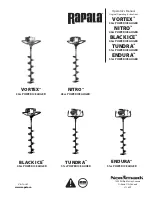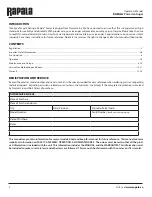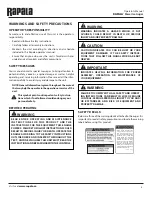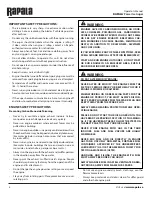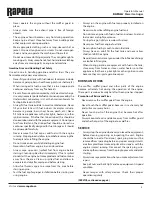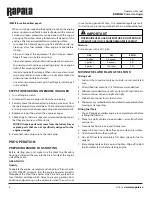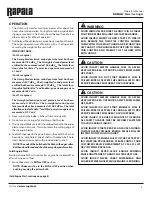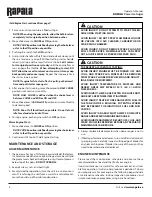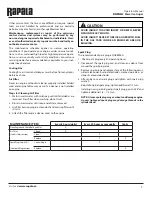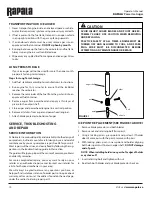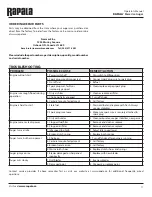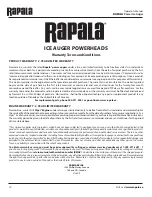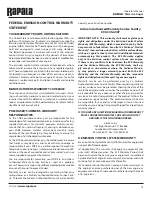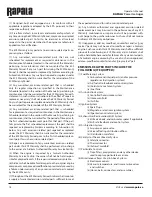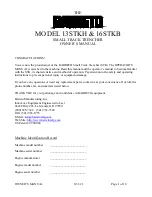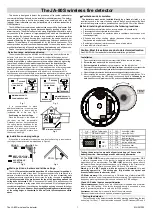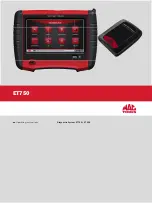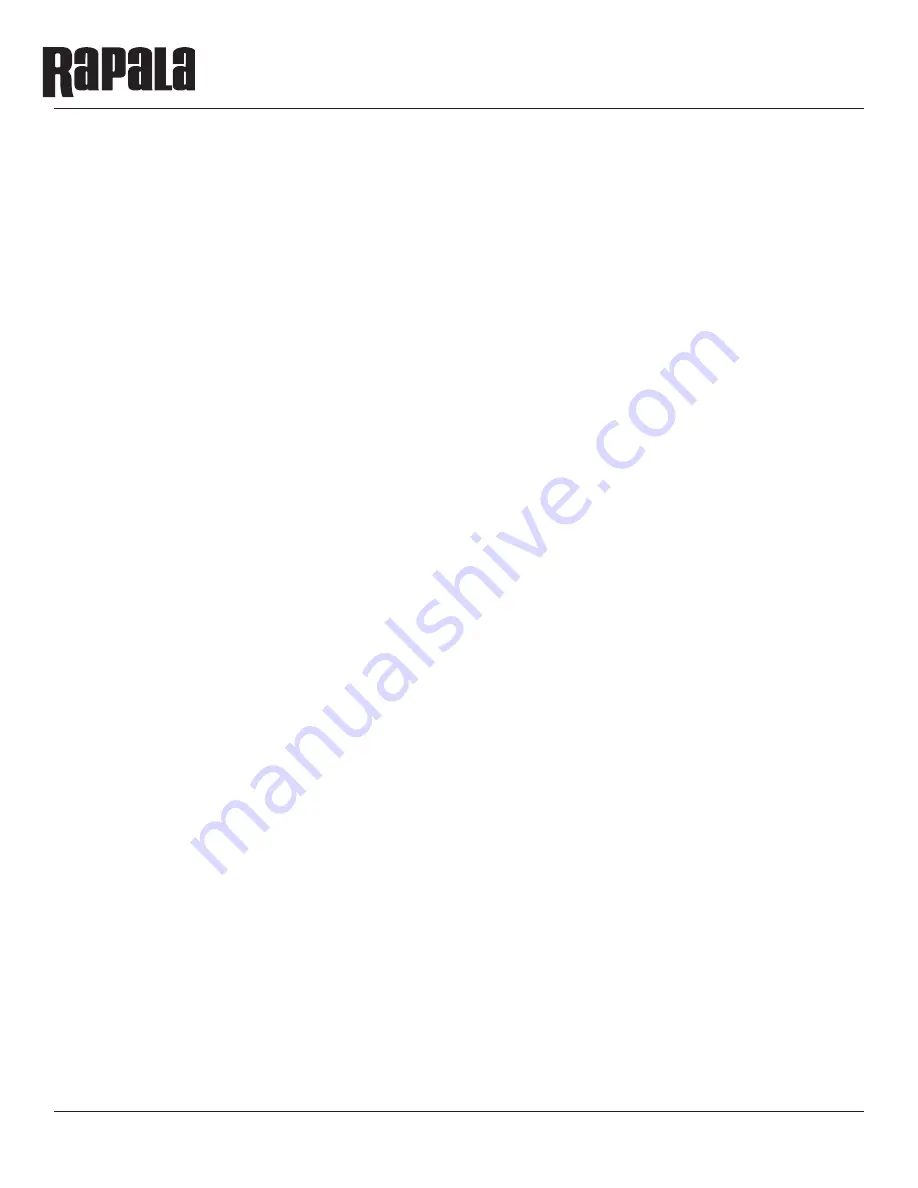
5
Visit us at
www.rapala.ca
Operator's Manual
RAPALA
®
Power Ice Auger
•
Never operate the engine without the muffler guard in
place.
•
Always make sure the exhaust pipe is free of foreign
objects.
•
The engine exhaust becomes very hot during operation.
Keep engine at least three feet away from buildings and
other equipment during operation.
•
Wear appropriate clothing such as a long-sleeved shirt or
jacket. Also wear long trousers or slacks. Do not wear open
shoes, and never operate the machine with bare feet.
•
Do not wear loose clothing or jewelry. They can get caught in
moving parts. Always keep hands, feet, hair and loose clothing
away from any moving parts on engine and machine.
Gasoline fires and Handling fuel Safely
Use extra care in handling gasoline and other fuels. They are
flammable and vapors are explosive.
•
Never fill your fuel tank with fuel indoors. (Examples include:
basement, garage, barn, shed, house, porch, ice shelter, etc.)
•
When storing extra fuel be sure that it is in an appropriate
container and away from any fire hazards.
•
prevent fire and explosion caused by static electric discharge.
Use only nonmetal, portable fuel containers approved by the
Underwriter’s Laboratory (U.L.) or the American Society for
Testing & Materials (ASTM).
•
Always fill fuel tank outside in a well ventilated area. Never
fill your fuel tank with fuel indoors. (Examples include:
basement, garage, barn, shed, house, porch, etc.) Never
fill tank near appliances with pilot lights, heaters, or other
ignition sources. If the fuel has to be drained, this should be
done outdoors and with the proper equipment. Do not pour
fuel from fuel tank. The drained fuel should be stored in a
container specifically designed for fuel storage or it should
be disposed of carefully.
•
Never remove the fuel cap or add fuel with the engine
running. Stop engine and allow to cool before removing the
fuel cap/and or refilling the engine.
•
Do not smoke near or while handling engine fuel.
•
Never drain fuel from engine in an enclosed area.
•
Always wipe up excess (spilled) fuel from engine before
starting. Clean up spilled fuel immediately. If fuel is spilled,
do not start the engine but move product and fuel container
away from the area. Clean up spilled fuel and allow to
evaporate and dry after wiping and before starting.
•
Allow fuel fumes/vapors to escape from the area before
starting engine.
•
Test the fuel cap for proper installation before starting and
using engine.
•
Always run the engine with fuel cap properly installed on
the engine.
•
Never smoke while refilling engine fuel tank.
•
Do not store engine with fuel in fuel tank indoors. Fuel and
fuel vapors are highly explosive.
•
During storage, tightly screw down fuel cap.
•
Never pour fuel from engine fuel tank.
•
Never siphon fuel by mouth to drain fuel tank.
•
Always have an adult fill the fuel tank and never allow
children to fill the engine.
•
Never allow an adult or anyone under the influence of drugs
or alcohol to fill engine.
•
When storing gasoline or equipment with fuel in the tank,
store away from furnaces, stoves, water heaters or other
appliances that have a pilot light or other ignition source
because they can ignite gasoline vapors.
BURNS AND fIRES
The muffler, muffler guard and other parts of the engine
become extremely hot during the operation of the engine.
These parts remain extremely hot after the engine has stopped.
Prevention of Burns and fires
• Never remove the muffler guard from the engine.
• Never touch the muffler guard because it is extremely hot
and will cause severe burns.
• Never touch parts of the engine that become hot after
operation.
• Always keep materials and debris away from muffler guard
and other hot parts of the engine to avoid fires.
SERVICE
• Always stop the engine whenever you leave the equipment,
before cleaning, repairing or inspecting the unit. Engine
should be turned off and cool, spark plug wire must be
removed from spark plug before any repairs or adjustments
are attempted. Never make adjustments or repairs with the
engine (motor) running. Disconnect the spark plug wire,
and keep the wire away from the plug to prevent accidental
starting.
• Always wear eye protection when you make adjustments or
repairs.
• Keep all nuts and bolts tight and keep equipment in good
condition.
• Never tamper with safety devices. Check their proper
operation regularly.
(SERVICE, continued on page 6)

